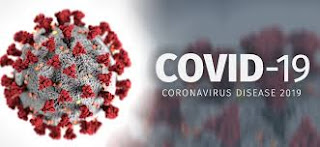His name was Charles and he was my brother
We grew up with the story of my grandfather's brother who gave up his life as a non-white to live amongst the ruling elite.
He lived in Manderston with his wife and brothers.
They were struck by a series of illnesses and accidents that resulted in his, burying all but one of his children. One at a time.
We are led to believe that most died of the myriad of sicknesses that afflicted kids back before we had access to medical care. The last one was a pretty little boy who went to the loo at night, using a paraffin lamp for light.
"Sketeket" that's what the lamp was called back then.
Apparently, his pyjamas caught alight and he "died of fright". I couldn't tell you the exact details as we were very young and these stories were always shrouded in mystery and spoken in hushed tones.
What we do know was that something broke, deep inside of him. My Nanas brother was devastated.
He left his wife, and remaining daughter, on the farm in the care of my Nana, and went to Johannesburg where he lived as a white man, by the assumed name of Charles.
Oddly, in this crazy world we lived in, he wasn't seen as a quitter who abandoned his family, but as a man who rose above his terrible fate, and the injustice of apartheid.
He was seen as having dealt a blow to "the man". A victory over the evil empire.
That alone should give us pause to study the effects of that evil system on our collective minds.
I don't know what the exact circumstances were, and over the years, while we got to know his wife, the real story of his life was lost. Cloaked in legend.
What I do know is that I recently told my family in Manderston that I remembered where on the farm the children were buried.
They looked at me, incredulous as if I were making it up. I don't know if they didn't believe that I actually knew what I said I did, or if they hoped that I would change the subject.
They looked at me, incredulous as if I were making it up. I don't know if they didn't believe that I actually knew what I said I did, or if they hoped that I would change the subject.
They had forgotten all about that row of little graves, and it seemed that I might actually be the last and only one who actually knew where the little bones rested.
Some kind of collective amnesia of a painful memory.
Nobody except for my grandfather heard from Charles in his new life as a white man.
Legend has it that when he died, and they tried to contact next of kin, and having found my Nana's details, informed him of his loss.
My dad and gramps went to Johannesburg, to claim the body and were denied access because he was in a white morgue and they, who were not whites, could not possibly be related to the deceased.
It was only when my Nana showed the officials the letters from his late brother, that he was able to prove that Charles was his brother. And the body finally released and laid to rest.
This was the part of the story that we heard over and over as kids.
How one of our kind had risen above the unjust labels, and recreated himself as Charles, and the difficulty they had in claiming his body.
Back in the day, this made for an interesting story that we heard many times.
How one of our kind had risen above the unjust labels, and recreated himself as Charles, and the difficulty they had in claiming his body.
Back in the day, this made for an interesting story that we heard many times.
Looking back now at that same story, I realise now that as kids we might have gotten it all wrong.
Firstly, the bit about reinventing oneself to pass as white because one had fair skin, was not beating the system but submitting to it. And gaining advantage from it was actually endorsing the right of white skin to lord over non-white.
I don't know enough about the circumstances of series of unfortunate events that led to the death of all most of his kids, but I find it rather odd, that one man lost so many kids, in unrelated incidents, at a time. None of his siblings lost kids by the dozen. But again I just don't know what the tragic story was, and hope that someday we are able to speak openly about this.
Time is against us, as there are scarce few who remain who are able to shed light on this.
His surviving daughter grew up with my mother. They lived as sisters.
She got married and has a huge and successful family tree of her own.
M Parak. 2015




Comments